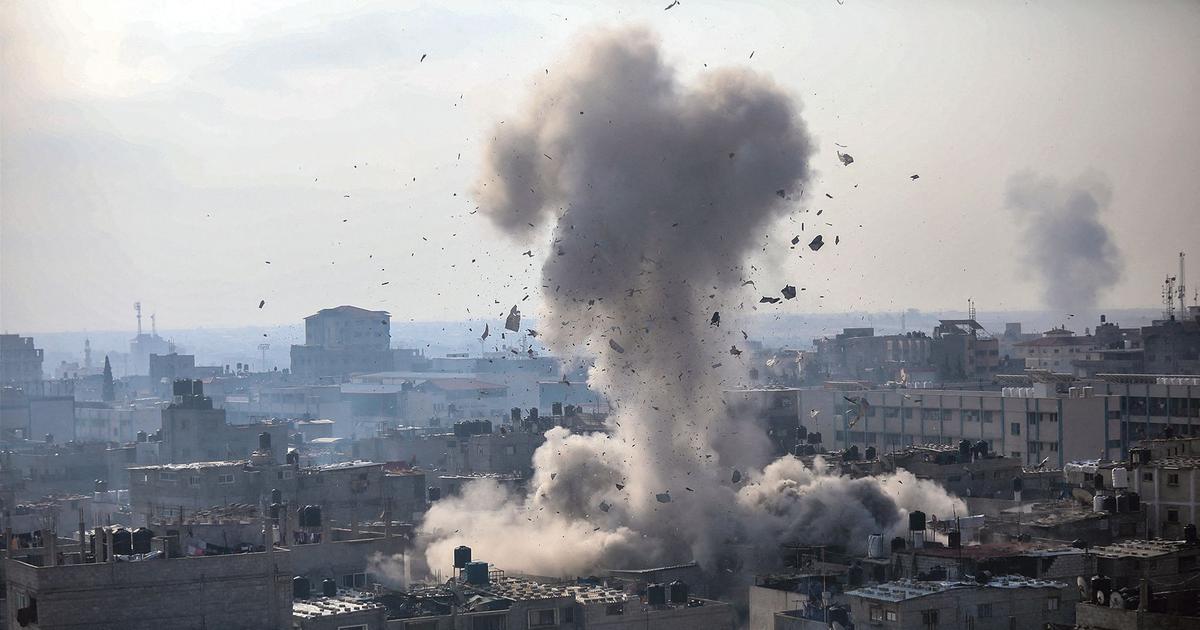Tel Aviv
The Gaza Strip resumed Israeli aerial bombardment and Hamas rocket fire on Friday morning. The two protagonists face each other again, after a week's break. The flare-up was sparked by a dispute over the list of 10 female hostages that Hamas was supposed to release on Friday for an extra day off.
Binyamin Netanyahu accused "Hamas-Daesh" of not having respected its commitments while the Palestinian Islamists released 105 hostages, including 81 Israelis, in exchange for 210 Palestinians held by Israel. Under these conditions, "the resumption of fighting was necessary," the Israeli prime minister said. Hamas is still holding 137 hostages, including about <> women, Israeli officials say.
Read alsoWar in Gaza: between Israel and Hamas, who benefited the most from the truce?
On the ground, the Israeli air force carried out some 200 air and ground attacks, returning to the rhythm adopted since the beginning of the conflict on 7 October, following the bloody incursion by Hamas into southern Israel that killed 1200,<> people. Hamas, for its part, fired dozens of rockets and mortar shells into Israeli territory, proving that despite all the blows dealt to its military wing, it was not put out of action. For this new round, Israeli military officials say they intend to strike much harder in the southern Gaza Strip, which has so far been relatively spared while the north has borne the brunt of the attacks, including Gaza City.
The offensive is mainly aimed at the town of Khan Younes, considered the nerve center of the Hamas leadership, including the place where Yahya Sinwar, the leader of the Islamist organization, is believed to be hiding in a network of tunnels. But by attacking in this overcrowded region after the arrival of 1 million Palestinians who have fled the fighting in the north, the Israeli army is taking the risk of multiplying "collateral damage" among Palestinian civilians. In an attempt to avoid such a scenario, the IDF released a video in Arabic and a map of the Gaza Strip divided into hundreds of small areas on social media in order to alert Palestinians living in "sensitive" areas and give them time to leave in the event of Israeli attacks. The goal is to avoid another mass exodus, like the one that occurred in the North.
An episode between two negotiation sessions
It is difficult to say whether such a precaution will be enough. The only certainty is that Antony Blinken, the US secretary of state, set certain limits that must not be crossed on Thursday during a meeting with the war cabinet. He made it clear that the displacement of the population in the north cannot be repeated in the south and added: "It is imperative that Israel give Palestinians displaced in the south the choice to return to the north as soon as conditions allow." According to media leaks, Antony Blinken stressed that time is running out for Israel as the longer the war drags on, the more international pressure will increase on both Israel and the United States to stop the war.
He hit back at Israel's chief of staff, Gen. Herzi Halevi, who said the fighting would last "several weeks at least." Binyamin Netanyahu and Defense Minister Yoav Gallant went even further, proclaiming that an IDF offensive could take "the time it takes" or even "months to recover all the hostages, eradicate Hamas and ensure that the Gaza Strip is no longer used for attacks on Israel."
Read alsoIsrael-Hamas war: nearly 60% of buildings in northern Gaza damaged or destroyed
But these martial declarations were only half convincing. Qatar, which played a key role in the ceasefire agreement, including the participation of David Barnea, the head of the Mossad, in the talks, said it was in favour of continuing efforts with all protagonists to achieve a "humanitarian pause". Egyptian officials are on the same page. In Israel, a senior official quoted by state radio suggested a scenario in which the clashes would be limited to "a few days," which he said would be enough to force Hamas' hand to release hostages. The resumption of war would be only an episode between two rounds of negotiations.
The other unknown is the reaction of Lebanon's Hezbollah, which respected the ceasefire agreement, but was not part of it, after firing multiple rockets into northern Israel, prompting the evacuation of a dozen border towns. Skirmishes resumed on Friday, but at first with reduced intensity.

